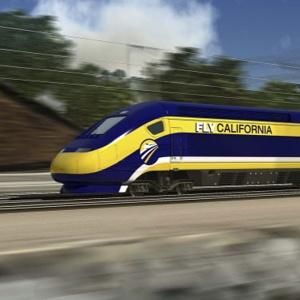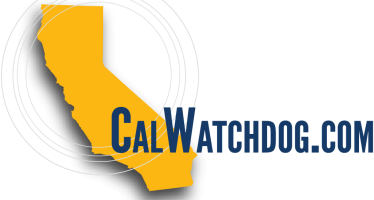Democratic candidates for governor must contend with bullet-train difficulties
 The March 9 release of the first updated business plan in two years for the state’s high-speed rail project could sharply intensify the pressure on Democratic gubernatorial candidates who back the project to explain their support.
The March 9 release of the first updated business plan in two years for the state’s high-speed rail project could sharply intensify the pressure on Democratic gubernatorial candidates who back the project to explain their support.
The Republican candidates – Assemblyman Travis Allen of Huntington Beach and Rancho Santa Fe businessman John Cox – reflect the GOP consensus that the project is a boondoggle that’s unlikely to ever be completed. But the major Democratic hopefuls – Lt. Gov. Gavin Newsom, former Los Angeles Mayor Antonio Villaraigosa, state Treasurer John Chiang and former Superintendent of Public Instruction Delaine Eastin – have all indicated they would continue with rail project, albeit with little of the enthusiasm shown by present Gov. Jerry Brown.
While the new business plan was depicted by the California High-Speed Rail Authority’s new CEO, Brian Kelly, as a constructive step toward salvaging the project, the plan’s key details were daunting:
The estimated cost of the project, which has yo-yoed from $34 billion to $98 billion to $64 billion, changed once again. The business plan abandoned the previous $64 billion estimate for an estimate of $77 billion – accompanied by a warning that the cost could go as high as $98 billion.
Even at the lower price tag, the state didn’t have adequate funds to complete a first $20 billion-plus bullet-train segment linking populated areas. The present plan for a Central Valley route has an eastern terminus in a remote agricultural field north of Shafter. That’s because the $9.95 billion in bond seed money that state voters provided in 2008 has only been buttressed to a relatively slight degree by additional public dollars from cap-and-trade pollution permits.
The business plan cites the possibility of additional federal funds beyond the $3.3 billion allocated by Washington early in the Obama administration. It doesn’t note, however, that domestic discretionary spending has plunged in recent years amid congressional concern about the national debt blowing past $20 trillion.
The business plan also promotes the possibility of outside investors. It doesn’t mention that such investors have passed on the project for years because state law bars the California High-Speed Rail Authority from offering them a revenue or ridership guarantee.
From 5 years behind schedule to 10 years behind
The initial operation of a bullet-train link serving California residents went from five years behind schedule, in the estimate of the Los Angeles Times, to 10 years behind schedule. The business plan said the project would begin operations no sooner than 2029.
The potential immense cost overrun of the bullet train segment in the mountains north of Los Angeles was fully acknowledged for the first time. A 2015 Times story laid out the “monumental” challenge.
Democratic candidates to succeed Brown have chosen to focus on housing, single-payer health care, immigration and criticism of President Donald Trump in most early forums and campaign appearances. But front-runners Newsom and Villaraigosa in particular seem likely to be pressed on how they can square their claims to be experienced, tough-minded managers with support for a project which seems less likely to be completed with every passing year.
Proposition 70 on the June primary ballot also will keep the bullet train on the campaign’s front burner, to some extent. It was placed on the ballot as part of a 2017 deal cut by the governor to extend the state’s cap-and-trade program until 2030. If Proposition 70 passed, it would require a one-off vote in 2024 in which cap-and-trade proceeds could only be used for specific needs with two-thirds support of each house of the Legislature. Republicans may be able to use these votes to shut off the last ongoing source of new revenue for the high-speed rail project.
Chris Reed
Chris Reed is a regular contributor to Cal Watchdog. Reed is an editorial writer for U-T San Diego. Before joining the U-T in July 2005, he was the opinion-page columns editor and wrote the featured weekly Unspin column for The Orange County Register. Reed was on the national board of the Association of Opinion Page Editors from 2003-2005. From 2000 to 2005, Reed made more than 100 appearances as a featured news analyst on Los Angeles-area National Public Radio affiliate KPCC-FM. From 1990 to 1998, Reed was an editor, metro columnist and film critic at the Inland Valley Daily Bulletin in Ontario. Reed has a political science degree from the University of Hawaii (Hilo campus), where he edited the student newspaper, the Vulcan News, his senior year. He is on Twitter: @chrisreed99.
Related Articles
CalWatchdog Morning Read – May 18
Treasurer Chiang will run for governor Graduation rates rise Sen. Feinstein seeks compromise, drought relief Death penalty still divides Water agency
Think tank explained CA’s affordable housing debacles long ago
A weekend story about the gross failure of affordable housing policies in San Francisco contained plenty of public frustration and
Cap and trade, or tax and raid?
Aug. 28, 2012 Katy Grimes: An auction tax is one of the proposed methods for allocating permits to California businesses and public




